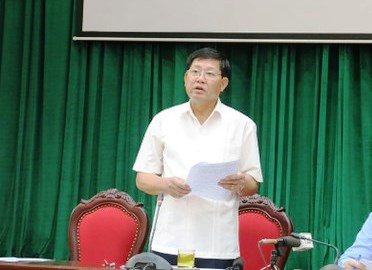.jpg) Opinion
Opinion


|
| Hoàng Thành Thái. — Photo infonet.vn |
Hà Nội City currently has about 200,000 recipients of social protection support, the highest number in Việt Nam. They are also unlikely to escape from their challenging situation. How has the city supported these people?
So far, 100 per cent of the social protection recipients have been issued with free health insurance cards, all disabled persons of working age and capable of working have received support in terms of vocational training or finding a job, while disabled students or pupils are eligible for tuition fee support. Those with more special needs can be admitted to full-time care in social protection centres throughout the city.
Currently, all 14 public social protection centres under the management of the Hà Nội Department of Labour, Invalids and Social Affairs are taking care of more than 2,600 persons. There are many cases where orphans or disabled children have grown up in these centres to become good, model citizens, and brought inspiration to many others in the same situation.
Other than support from the State, the social protection recipients have also received support from society, either directly or via social organisations or philanthropist groups.
To realise the goal of leaving no one behind in the course of the city’s continuous growth and development, Hà Nội People’s Council in July stipulated in Resolution 04/2019/NQ-HĐND that all elderly people living alone, people with debilitating ailments or critical illnesses in households without work-capable people will receive monthly allowances, with the rate equal to that of the city’s poor standards.
The city’s yearly budget to carry out sustainable poverty reduction is currently at VNĐ300 billion (US$12.9 million).
Hà Nội’s support policies for disadvantaged and underprivileged people are more diverse and comprehensive compared to the general support framework.
How has the city implemented Resolution 04?
After Resolution 04 was promulgated, the municipal Department of Labour, Invalids and Social Affairs, Department of Finance, Department of Education and Training and Hà Nội Social Security agency have together issued guidelines for local governments to implement the resolution.
Based on this, localities with households that stand no chance of climbing out of poverty will conduct information campaigns to raise awareness on the content of the resolution, in addition to taking stock of all the eligible households in their jurisdictions.
Many localities have already ratified sustainable poverty reduction plans for the years ahead.
The resolution is considered an important basis for Hà Nội to realise its ambitious goal of having no poor households and ensuring that 100 per cent of all social protection recipients do not have to live in poor conditions by the end of 2019.
There’s no denying the results achieved in the city’s efforts to take care of the underprivileged. However, there are still cases where the much-needed resources have been misused, raising doubts among society? What can competent authorities do to make sure that the allocated resources will reach the intended hands?
I can vouch that all the support intended for the needy and other underprivileged people in Hà Nội have arrived at the “right destinations.”
The case involving personnel of the Hà Nội Nursing Centre for Elderly & Disabled Children in Ba Vì District frequently selling donated goods to outside buyers, which has made headlines in the media in recent days, is an isolated incident and should be treated as such. Of course, I understand how such an incident could tarnish the image and reputation of all those involved in philanthropist work.
As an agency tasked with exercising State management over social affairs and philanthropy, Hà Nội’s Department of Labour, Invalids and Social Affairs will certainly punish those in the wrong.
In addition, the department – in coordination with local administrations – must impress upon all of its officials and civil workers the need to closely observe the code of conduct applicable to them.
Everyone should uphold the spirit of responsibility – making the best conditions for the donors to approach those in need and making sure that their support will reach the intended recipients.
Regarding the support sourced from the State budget or State agencies, the management of these resources must be absolutely transparent and the information readily available to the public. — VNS